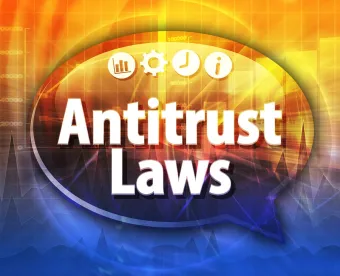The COVID-19 pandemic has placed additional stressors on labor markets, particularly for healthcare workers and essential employees. While recognizing that employers, recruiters and staffing agencies may need—and be allowed to—cooperate in unprecedented ways to address current needs, on April 13, 2020, the US Department of Justice and US Federal Trade Commission issued a joint statement reinforcing their vigilance against collusion or anticompetitive conduct in labor markets and their willingness to pursue criminal and civil actions against violators.
IN DEPTH
On April 13, 2020, the US Department of Justice (DOJ) and US Federal Trade Commission Bureau of Competition (FTC) issued a Joint Antitrust Statement Regarding COVID-19 and Competition in Labor Markets. The joint statement made clear that, although firms may need to cooperate and collaborate in unprecedented ways while responding to the Coronavirus (COVID-19) pandemic, the two agencies remain vigilant against collusion or anticompetitive conduct by employers, staffing companies and recruiters that might harm workers, including healthcare workers and other essential employees.
While recognizing that there are many forms of procompetitive collaborative arrangements, the agencies state that COVID-19 does not provide a rationale for anticompetitive conduct such as agreements to restrict recruiting, lower wages, salaries or hours worked, or unlawfully exchange competitively sensitive employee compensation information. The statement also provides information for DOJ and FTC complaint hotlines.
For years, both agencies have challenged violations of the antitrust laws and have taken enforcement actions against employers that have agreed not to compete for employees. The DOJ can and will criminally prosecute companies and individuals who enter into naked wage-fixing and no-poach agreements. Even absent a collusive agreement, the FTC may pursue a civil challenge against companies and individuals that invite others to collude. The agencies also can challenge unilateral anticompetitive conduct by employers that harms competition in a labor market.
For example, in 2018, the FTC announced that it settled an investigation of two staffing companies that allegedly agreed on the rates paid to physical therapists in the Dallas-Fort Worth area (In Re Your Therapy Source, LLC, FTC File No. 171-0134).
The April 13 joint statement builds on and reiterates the agencies’ prior guidance to human resources professionals provided in their 2016 Antitrust Guidance for HR Professionals (HR Guidance), which made clear that the DOJ may criminally prosecute individuals and companies and that the FTC may pursue civil enforcement actions. In the HR Guidance, the FTC and DOJ also remind parties that “firms that compete to hire or retain employees are competitors in the employment marketplace, regardless of whether the firms make the same products or compete to provide the same services” and that agreements among employers not to recruit certain employees or not to compete on terms of compensation are illegal.
Companies and individuals who commit violations are not just at risk from investigation and prosecution by the agencies. State attorneys general and private plaintiffs may also investigate and challenge anticompetitive practices in labor markets. Private lawsuits challenging labor market-related violations of the antitrust laws can recover treble damages and attorneys’ fees if they prevail. Thus, companies and individuals involved in hiring, recruiting, retaining or placing workers should remember that the antitrust laws continue to apply to labor markets with full force, just as they do to the markets for goods and services. The COVID-19 crisis has not changed these fundamental facts.
Parties to collaborative activities should remember that under existing antitrust exceptions, they may petition the government for redress or jointly engage in lobbying efforts about labor market related issues under the Noerr-Pennington doctrine, which immunizes firms from antitrust liability when exercising their First Amendment right to petition the government. In addition, certain action at the direction and under the supervision of state governments may be immunized under the state action doctrine.
While the COVID-19 pandemic has fundamentally disrupted many sectors of the economy, firms should keep in mind that the antitrust laws and exceptions continue to govern their business practices for workers and comply accordingly.





 />i
/>i

